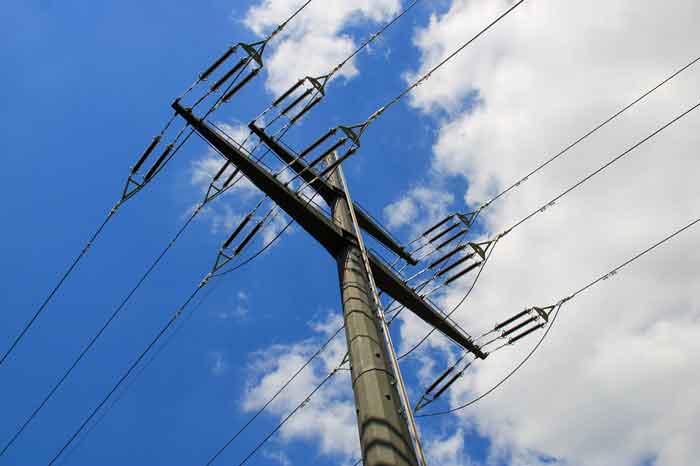Leader of Federal Energy Regulatory Commission on hot seat with critics
WASHINGTON - When Pat Wood III came to Washington, California regulators were scrambling to keep the street lamps lit, and consumers were clamoring for electric company executives' heads.
Appointed by President Bush to deal with an electric industry in crisis, Wood has spent nearly four years trying to refashion the nation's wholesale power markets.
His goal, as head of the Federal Energy Regulatory Commission, has been to avert a grid meltdown. But he has been unable to sell his ideas on Capitol Hill - particularly among Southern Republicans.
And that failure could cost him his job, Capitol Hill watchers say.
"It's up to the president," Wood said.
White House officials wouldn't comment on Wood's future. And Wood has never said publicly whether he would seek a second term.
He doesn't dispute speculation that he could face a tough confirmation.
This job isn't for the person who hopes "to be here forever," Wood said. "That's a given."
The Port Arthur native has led his agency's bid to impose a new structure on the patchwork of local wholesale electricity markets.
Last month the commission turned up the heat, going after electric companies that regulators say control too much of the wholesale electric markets in their home territories.
In so doing, Wood has run up against some of the nation's largest power suppliers and their political allies in Congress.
While even his harshest critics concede this engineer and Harvard- trained lawyer has a brilliant mind, Wood infuriated lawmakers who felt he did not listen to their concerns.
"There are some people who say Wood has the worst tin ear in Washington," one Capitol Hill source said.
The 42-year-old drugstore owner's son came to Washington in 2001, flush with success as the architect of Texas' electric deregulation plan.
But Wood's first action as a member of the commission was to orchestrate a deal to impose price caps on power being sold in California during a period plagued by rolling blackouts.
That decision was wildly credited with helping quell the crisis. But putting a limit on prices wasn't the kind of remedy the power industry was expecting from a Bush appointee.
California Democrats were pleasantly surprised by Wood at first. They later grew disenchanted as his agency made decisions on refunds that were far short of what the state wanted from Houston-based power suppliers such as Enron, Reliant Energy and Dynegy.
When Wood arrived, he was closely identified with the then- champion of electricity deregulation, Enron Chairman Ken Lay.
After Enron's ignominious collapse, former Sen. Sen. Ernest "Fritz" Hollings, D-S.C. - in just one of many times Wood has been dragged to the congressional woodshed - asked the chairman if he wasn't "Kenny Boy's boy in Austin."
"I was Governor Bush's man," Wood replied.
Enron's demise created a political vacuum of sorts in the power market debate. The political base for electricity deregulation evaporated, leaving the opposition - led by Atlanta-based Southern Co. - in the ascendancy.
In 2002, in response to the White House's call for the creation of a national power grid, the commission unveiled its plan to ensure that companies that wanted to sell electricity in a wholesale power market didn't also control the power lines.
The concern was that companies that both generated electricity and owned the transmission system could muscle other players out of their wholesale power markets.
The centerpiece of the proposed rule was a blueprint, called a Standard Market Design, detailing how regulators thought a power market should work.
This design, regulators argued, would foster competition in the wholesale power market, reducing costs for power customers. It also ensured independent power suppliers equal access to the transmission grid so they could sell electricity across state borders.
But when commission officials traveled the nation to sell their plan, they were met with howls of protest. Opponents dubbed it a "forced march."
Critics, particularly in the Southeast and Northwest, where electricity customers enjoy some of the cheapest rates in the country, suggested power companies might ship their less expensive electricity outside their regions, sticking their customers with higher bills.
Opponents also pointed to California, the Frankenstein's monster that resulted from a botched government attempt to craft a power market.
So the agency beat a retreat.
The following year, the Federal Energy Regulatory Commission came out with a more modest proposal.
The new approach was aimed at nudging companies into "regional transmission organizations," independent grid managers that would help ensure that entrenched utilities didn't stifle competition from independent power sellers. Texas already had its own regional grid manager, the Electric Reliability Council of Texas, better known as ERCOT.
Again, the agency met stiff resistance. Power companies complained that the costs associated with joining such organizations were far higher than regulators assumed.
Then, in the summer of 2003 the lights went dark from Manhattan to Michigan. The massive blackout demonstrated the fragility of the nation's power grids, but it still didn't clinch the argument for regional transmission organizations.
At that same time, Republicans were busy writing the most comprehensive overhaul of the nation's energy policy in more than a decade.
Sen. Richard Shelby, R-Ala., and Sen. Trent Lott, R-Miss. - both of whom had received large campaign contributions from Southern - led the charge against the commission's proposed changes.
When the bill was unveiled in November 2003, it included language specifically barring regulators from imposing their standard market design on any company before 2007.
Vice President Dick Cheney, the author of the Bush energy plan and the White House chief negotiator on the bill, had allowed the language to remain.
Shelby hailed the provision as a "victory for Alabama consumers." The bill eventually failed by two votes, downed by other unrelated issues.
Chastened by the attacks in the Senate, the commission backed off its push for regional transmission organizations.
Instead, regulators dusted off a proposal from 2001, a plan to measure the muscle power suppliers can exert in the wholesale electricity markets in their home territories.
Companies deemed to control more than 20 percent of the wholesale market would have to conduct a far more extensive study to demonstrate that the initial tests were off base. Otherwise, they could be forced to issue refunds to customers or have their prices regulated rather than charge the market rate.
Some 20 senators signed a letter objecting to these new "market screens." Power companies challenged the validity of the agency's methodology.
Undeterred, Wood's commission pushed ahead. Nine companies - including Southern, Duke Power and Entergy - flunked the tests.
According to the agency's analyses, Southern controlled 49 percent of the wholesale market in its home area, Entergy 35 percent and Duke Power a whopping 72 percent.
"Why should 72 percent market share make me think that resembles anything like a competitive marketplace?" Wood asked.
Regulators, Wood argued, have a responsibility to ensure that electricity customers pay just and reasonable rates. That means they must make changes in flawed markets "rather than wink and wink and pretend we have competition."
The companies were each given two months to explain why their market shares were not as extreme as the agency's analysis would suggest. Their responses will be due in late February.
Southern said losing the right to charge market-based rates would initially reduce operating cash flow by less than 1 percent. But the credit rating agency Standard & Poor's responded, issuing a bulletin describing the order as an "unfavorable" development.
Critics complained that the market power screens were just the commission's latest attempt to bludgeon recalcitrant companies into joining regional transmission organizations.
"We interpret it as a shot across the bow at the anti-RTO advocates," said consultant Robert McCullough, managing partner of Portland, Ore.-based McCullough research.
Could this latest move be Wood's finale?
"We don't believe he can survive," said one industry lobbyist who asked not to be named. "His enemies in the South would just crucify him in reconfirmation hearings."
Many on Capitol Hill and within the industry have been working under the assumption for some time that Joseph Kelliher, a former senior policy adviser to Energy Secretary Spencer Abraham and a new member on the commission, will be the next chairman.
When asked if Shelby would fight any attempt to renominate Wood, Shelby spokeswoman Virginia Davis said, "It is premature for Senator Shelby to speculate on Chairman Wood since his term is not up until this summer."
As for Southern, "we will clearly work with whomever is in that position," noted company spokeswoman Terri McCullough - no relation to consultant Robert McCullough.
"In any given job like this... you probably shouldn't think of running for office, and you probably shouldn't think about making a lot of friends," said Commissioner Nora Mead Brownell, Wood's staunchest ally at the agency. "What you should think about is your track record."
Related News

Ford deal to build electric cars in Oakville comes amid $500M government cash to upgrade plant
TORONTO - The federal government and Ontario have pledged to spend up to $500 million to make the Ford plant in Oakville, Ont., able to build electric vehicles.
The future of the plant has been a key question for Canada's automotive industry ever since the Unifor union started negotiating with the automaker for a new three-year pact to cover the company's Canadian workforce.
The two sides struck a deal a few hours after a midnight strike deadline on Tuesday morning, one that will see the company commit $1.98 billion to build five new electric vehicles and an engine contract that could yield…




